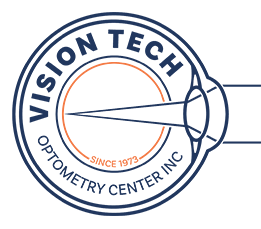
Sun damage comes from ultraviolet or UV light. There are three waves of UV light rays, namely: UVA, UVB, and UVC rays. UVC rays never reach the earth's surface, so you are watching out for UVA and UVB light.
UVA and UVB light can destroy your eye health. They can damage your eyes by triggering severe eye diseases, benign tumors, and even cancerous growths.
What Are UV-protected Sunglasses?
These are sunglasses that block out 99 to 100 percent of both UVA and UVB light. The glasses should also be large enough to cover the skin around your eyes.
If you wear prescription eyeglasses, you may want to consider adding the photochromic feature to your lenses. This feature allows your glasses to darken in the sun. That eliminates the necessity for sunglasses.
What Happens If You Do Not Wear UV-protected Sunglasses in the Sun?
Your eyes cannot see UV rays, but that does not mean danger is absent. Here are some long-term risks you run when you venture outdoors in the sun without your UV-protected sunglasses.
Sunburned Eyes (Photokeratitis)
Photokeratitis is a painful, although fleeting, eye condition that is brought about by too much sun exposure. It is like a sunburn, except that the condition distresses your eyes rather than your skin. UV light burns the transparent, protective outer surface of your eye (cornea) and the clear tissue that covers your eyeball’s surface (conjunctiva).
Photokeratitis is not just reserved for warmer seasons. The eyes can get sunburned in any season. UV light can bounce off water, sand, and snow, putting your eyes at risk of UV-related damage.
Cataracts
The eye lens absorbs UV rays and can result in the growth of cataracts. Research shows that UV rays can collect and thicken the proteins in the eye lens, stopping light from going through it. This condition is called cataracts, and it is the primary cause of blindness in the world.
Macular Degeneration
The cornea and eye lens absorb almost all UV light, which encourages the formation of protein deposits called drusen. Drusen facilitate the development of macular degeneration and cause damage to the retina. Macular degeneration is also a leading cause of vision loss, particularly in older people.
Ocular Melanoma
Ocular melanoma is a form of eye cancer that develops in or around the eyes. Too much sun exposure or spending too much time in tanning beds without protection can heighten your risk.
Finding UV-protected Sunglasses
Many stores will display racks and stacks of sunglasses, but be careful when choosing your pair. Not all sunglasses come with adequate sun protection. Even if the sunglasses claim to block UV light, read the label to check that the glasses offer 99 to 100 percent sun protection.
Also, ensure that the lenses are of top quality. Tinted and curved lenses are ideal for keeping the rays out and reducing eyestrain. Avoid lenses that look like they have wiggly lines, unevenly-sized lenses, or inconsistent coloring. As well, avoid blue shades as they may cause glare. Your optometrist will help you pick the right pair.
For more on the long-term consequences of not wearing UV-protected sunglasses, call Vision Tech Optometry Center at (540) 215-8361 to reach our office in Waynesboro, Virginia.






